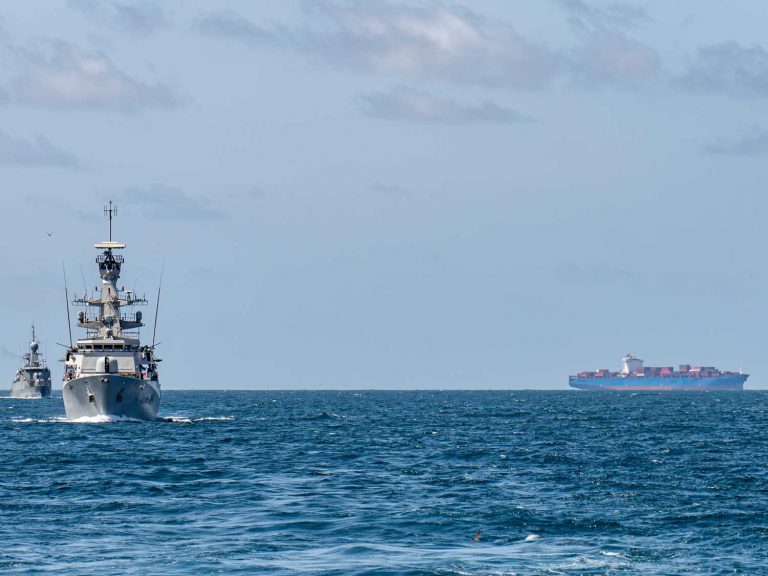
Date:
Red Sea crisis; situation report
The UK Maritime Trade Operations (UKMTO) is already reporting multiple new Houthi attacks on vessels, following two missile strikes on the British registered general cargo vessel “Rubymar” on Sunday, which the crew had to abandon on Monday.
The Rubymar attack was followed by a merchant vessel being tracked by at least two drones and then a second attack in the Bab al-Mandeb strait, where a vessel was hit by a drone resulting in superficial damage to the superstructure.
The EU formally announced operation Aspides which will see at least four frigates being sent to the Red Sea to protect shipping in few weeks, but for now it is clear that despite the offensive posture of US and UK forces this has done nothing to reduce the frequency of Houthi attacks.
At the UN, China and Russia accused the US and UK of illegal military action against the Houthis, as such actions were not sanctioned by the UN Security Council. Interestingly it appears they are not complaining about Houthi and/or Iranian involvement, which is most certainly also not sanctioned by the UN Security Council.
It is quite clear that the Houthis have not been deterred by military action and maritime security is unlikely to improve anytime soon, with the ongoing war in Gaza and associated geopolitical tensions in the Middle East. The knock-on effects could take us well into 2024.
Rate movements
With the pre-CNY surge now behind us, spot rate data shows Asia-Europe rates softening, but the pace of decline has slowed and while they might be 20% down on their peak in January, it is still 170% above the pre-Red Sea crisis level.
Similarly, Asia-Med rates, if they continue the present trajectory, have dropped over 20% on their peak, but are nearly 200% above pre-crisis levels.
On the Pacific both USEC and USWC spot rates have reached a plateau, but remain far above end 2023 levels and are not yet showing any material decline.
Equipment
With the exception of a few isolated routes, the container shipping lines have largely been successful in managing the supply of equipment across their networks, but supply does remain tight in certain regions, including India.
The carriers are desperate to maximise revenue earning opportunities by avoiding any equipment availability problems, as the market settles into the new normal of transits around the Cape of Good Hope (COGH).
Vessel scheduling
After circumnavigating the African continent twice, the first of the containerships that diverted away from the Suez route have now begun to arrive back in Asia with substantial delays.
These delays are challenging for carriers’ efforts to maintain weekly sailings from the Far East to Europe. At least two – and preferably three – extra vessels need to be added to each loop to guarantee all scheduled departures.
For carriers, it is a ‘lucky’ coincidence that the return of the first batch of divert-ed ships falls in the traditionally ‘slow’ period after Chinese New Year, when shipping lines tend to blank a number of sailings.
So far, only MSC and Maersk have announced a blank sailing program for the Chinese New Year period, with seven sailings voided to North Europe and four to the Med.
Amidst the Red Sea crisis, global shipping schedule reliability decreased by 5% in December 2023, the largest monthly drop since February 2021 to 56.8%. It is inevitable that these figures will drop further as January’s COGH’s diversions are factored in, but they will then be expected to improve. At least until the Suez route reopens.
If you have any questions or concerns about the impact of the Suez situation on your Asia supply chain, or would like to discuss its wider implications, please EMAIL our Chief Commercial Officer, Andy Smith.
For questions about automotive supply chains, trade with the Middle East, Africa, Indian Sub and beyond, please EMAIL our Automotive team who are standing by to assist.
Questions or concerns relating to marine insurance and/or the Suez situation, or to discuss wider implications please EMAIL our Chief Finance Officer Laurence Burford.
